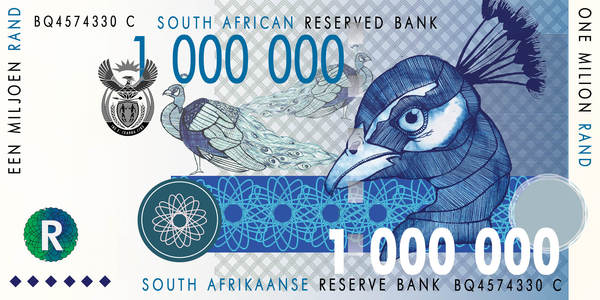How To Make a Million Before 30

Let’s face it: There’s a certain allure to achieving the status of millionaire, especially if you can hit the mark before age 30. While their peers were out making trouble, these young achievers were making bank. Forever in search of the secrets to entrepreneurial success, we peeked into the inspirational lives of five whiz kids who built million-dollar enterprises before the age of 20.
They partnered with friends, siblings and mentors, or did the work on their own. Three are from the U.S and two from the U.K. All started at age 15 or younger–and one even before he broke double digits. Their common thread: preternatural business sense and demon drive to turn ideas into reality. Furthermore, there are also 5 tips to help you keep your head above water for your future or even present six figure aspirations.
We all know the likes of Mark Zuckerberg, but it’s even more special when kids whose works aren’t that public make the some amount of money. While three of the four were making a mint on the Internet, Fraser Doherty was doing things the old-fashioned way. In 2002, at the age of 14, Doherty started making jams from his grandmother’s recipes in his parents’ kitchen in Edinburgh, Scotland. Neighbors and church friends loved them. As word spread, Doherty started receiving orders faster than he could produce them at home, so he rented time at a 200-person food-processing factory several days a month.
Go With The Flow
By age 16, Doherty left school (with his parents’ blessing) to work on his jams full time. In early 2007, Waitrose, a high-end supermarket in the U.K., approached Doherty, hoping to sell his Superjam products in their stores. Within months there were Superjam jars on the shelves of 184 Waitrose stores, hoisting Doherty and his business to new heights.
Doherty borrowed 5,000 pounds (about $9,000) from a bank to cover general expenses and more factory time to produce three flavors: Blueberry & Blackcurrant, Rhubarb & Ginger and Cranberry & Raspberry. Tesco followed, adding Doherty’s products to 300 stores across the U.K. In March, Superjam will launch at Tesco in Ireland.
Last year Superjam hit $750,000 in sales and is on track to double that in 2008 (about 50,000 jars a month). Based on a reasonable valuation multiple of one times revenue–jelly-maker J.M. Smucker trades at 1.2 times sales–Doherty’s 100% stake is worth in the neighborhood of $1 million to $2 million.
Not bad for a 19-year-old. Doherty’s recommendation to other young entrepreneurs: “Have an attitude of adventure, and enjoy the journey.”
Double Down
Cameron Johnson truly took that perspective to heart, parlaying one hit into the next. Back in 1994, when he was just 9, Johnson launched his first business out of his home in Virginia, making invitations for his parents’ holiday party. By the seasoned age of 11, Johnson had saved up several thousand dollars selling greeting cards. He called his company Cheers and Tears.
But the little guy didn’t stop there. At age 12, Johnson offered his younger sister $100 for her collection of 30 Ty Beanie Babies, all the rage at that time. The young entrepreneur quickly earned 10 times that amount by selling the dolls on eBay . Smelling potential, he contacted Ty and began purchasing the dolls at wholesale with the aim of selling them on eBay and on his Cheers and Tears Web site.
In less than a year, Johnson banked $50,000–seed money for his next venture, My EZ Mail, a service that forwarded e-mails to a particular account without revealing the recipient’s personal information. He hired a programmer to flesh out his idea, and within two years My EZ Mail was generating up to $3,000 per month in advertising revenue.
Be Fearless
Johnson still wasn’t done. In 1997, he joined forces with two other teen entrepreneurs, Aaron Greenspan and Tom Kho, to create an online advertising company called Surfingprizes.com, which provided scrolling advertisements across the top of users’ Web browsers. Those who downloaded the software received 20 cents per hour (a tiny fraction of the value to the advertiser) for the inconvenience of having ads splay across their computer screens.
The boys employed a classic pyramid strategy to spread the service. Users who managed to refer Surfingprizes.com to a new customer would nab 10% of that new person’s hourly revenue.
But Johnson and company didn’t just sell software–they wanted a piece of that juicy ad revenue too. Their solution: partnering with companies such as DoubleClick, L90 and Advertising.com that could sell the ads for them. Under the agreements, the middlemen would collect 30% of any ad revenue sold, while the three boys split the remaining 70%, out of which they paid those referral fees.
“I was 15 years old and receiving checks between $300,000 and $400,000 per month,” says Johnson. At 19, he sold the company name and software (but not the customer database) to an undisclosed buyer. Says Johnson, “Before my high school graduation, my combined assets were worth more than $1 million.”
Now just 23, and with other ventures under his belt, Johnson spends his time giving speeches and promoting a new book. “Put yourself out there,” he advises. “Don’t be afraid of rejection. Don’t be afraid to ask anything.”
Stick To A Vision
At 15, Catherine Cook and her brother Dave, 17, were flipping through their high school yearbook and came up with the idea to develop a free interactive version online. In 2005, the two convinced their older brother Geoff, a budding Web entrepreneur himself, to invest $250,000 and his time to help them launch MyYearbook.com, a social-networking site based in Skillman, N.J.
Soon after, the Cooks merged with Zenhex.com, an ad-supported site where users post a variety of homemade quizzes, more than doubling the number of eyeballs taking in their site. But when they tried to expand even further, they hit some snags. Potential investors wanted to move the company’s headquarters to New York (the Cooks wanted to stay put). They also wanted to have ads appear on users’ personal profile pages (the Cooks didn’t).
Good thing the Cooks stuck to their vision. By 2006, MyYearbook had raised $4.1 million from the likes of U.S. Venture Partners and First Round Capital. Since then, the site has attracted advertisers such as Neutrogena, Disney and ABC; it has grown to 3 million members worldwide and rakes in annual sales in the seven figures.
Seven figures is real money to anyone, let alone a teenager. Yet despite their heady success, all of these young world-beaters seem to remain refreshingly kids at heart.
The following are the promised 5 tips to becoming like me… (no, not really, my 0’s start from the from the front)
1) Love what you do more than you love money.
Sounds obvious, right? But it’s also easy to be passionate about making money while getting mired in a career that feels empty. Begin your entrepreneurial career by asking yourself what you love to do — then take a deep dive to get specific.
2) Respond to needs that you see.
Produce goods or services to help people or situations around you, based on what will improve lives.
3) Educate yourself for success.
Many young entrepreneurs dream of a business that will set them up for life, but don’t take time to learn the ins and outs of turning an idea into an entity that generates income and growth
4) Clear the decks of distractions.
If you’re living like many young adults under 30 — playing volleyball three times a week, going to lots of parties or watching every episode of “Isibaya” — you may not be ready to create a successful business just yet. You don’t have to be a workaholic, but be big on getting laser focus to make your dreams come true
5) Define and live by your values as you grow your business.
Be enthusiastic when you talk about how your business will or embodies certain ideals that you treasure/d from the beginning. Work with great people and you’ll certainly have a great outcome. Be about building a company that’s going to be around for a long time. Invest in having amazing people, a strong value system, and a great culture. You hear so many stories about companies that have gone public only to have their value system change entirely





